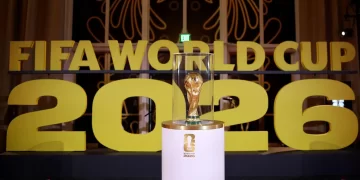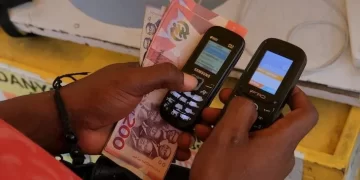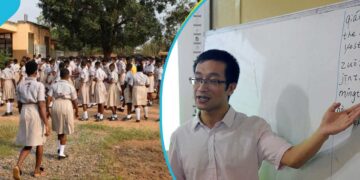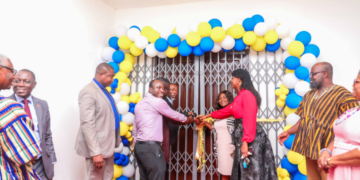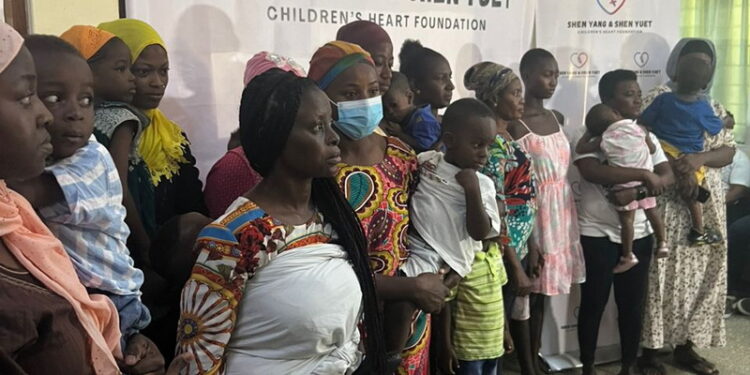The Shen Yano and Shen Yuet Foundation has promised to cover 25 patients’ surgeries each year at the Cardiothoracic Center of the Korle Bu Teaching Hospital in Accra for the next 10 years, providing hope for the nation’s hole-in-heart patients.
A memorandum of understanding between the foundation and KBTH states that for the next 10 years, about 25 patients with holes in their hearts will receive completely supported surgery every year.
According to statistics, one newborn has a heart or chest issue. Children’s heart and chest issues can be brought on by a variety of factors, including smoking, excessive drinking, prolonged exposure to X-rays, and bad dietary habits by pregnant women.The taking of drugs without prescription and the failure of some expectant mothers to attend antenatal care are the other causes.
COST
On the average, heart surgery in Ghana costs between $6,000 and $13,000.
Since most Ghanaians cannot afford the cost of heart surgery, many patients are left to wait for donations from people and organizations, and in some cases pass away before receiving care.
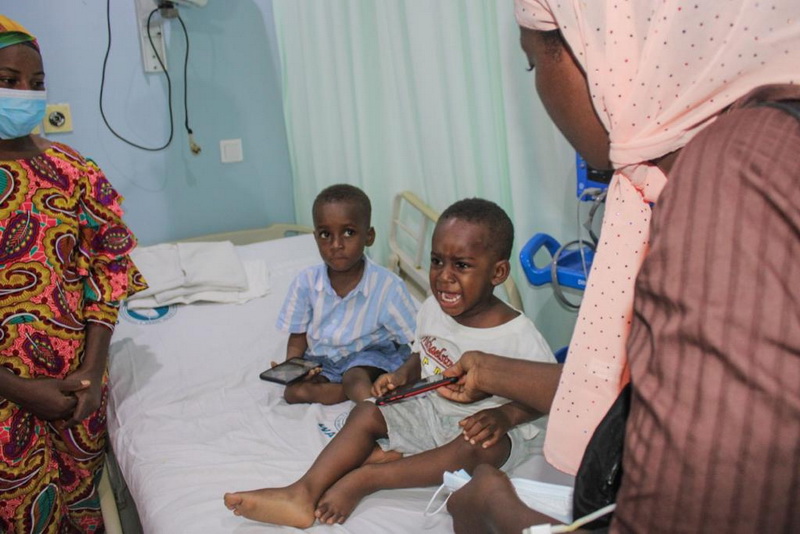
However, patients who lack the resources to have surgery can now seek for help from the Shen Yano and Shen Yuet Foundation, giving them hope at least for the next ten years.
The foundation is named after Shen Yano, a 17-year-old who survived a hole in the heart and is the son of Chinese businessman Shen Chang, who founded and serves as chairman of the Sunda and Keda group of enterprises, which has been operating in Ghana for about 20 years and employs over 7,000 Ghanaians.
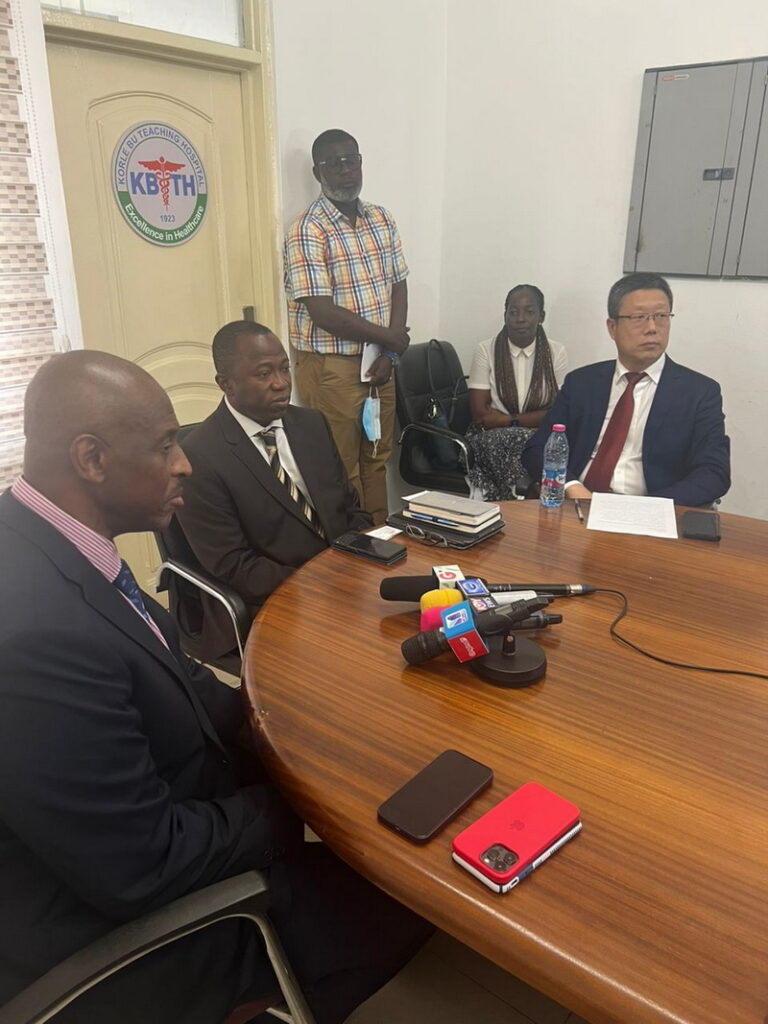
Read Also: Ethiopia replaces central bank boss amid high inflation
“It is an honour and a duty to lend a hand in this very important exercise and as an investor in this country for the last 19 years, I see myself as part of the Ghana story and so when Herbert Mensah suggested the idea to me I just accepted it because as a parent, I have been in such a situation before when my eldest son was diagnosed with the disease and today he is healed and doing well so we will do it for the next 10 years, pay for the cost of the surgery for the patients and will continue to mobilise resources for this noble cause,” he said.
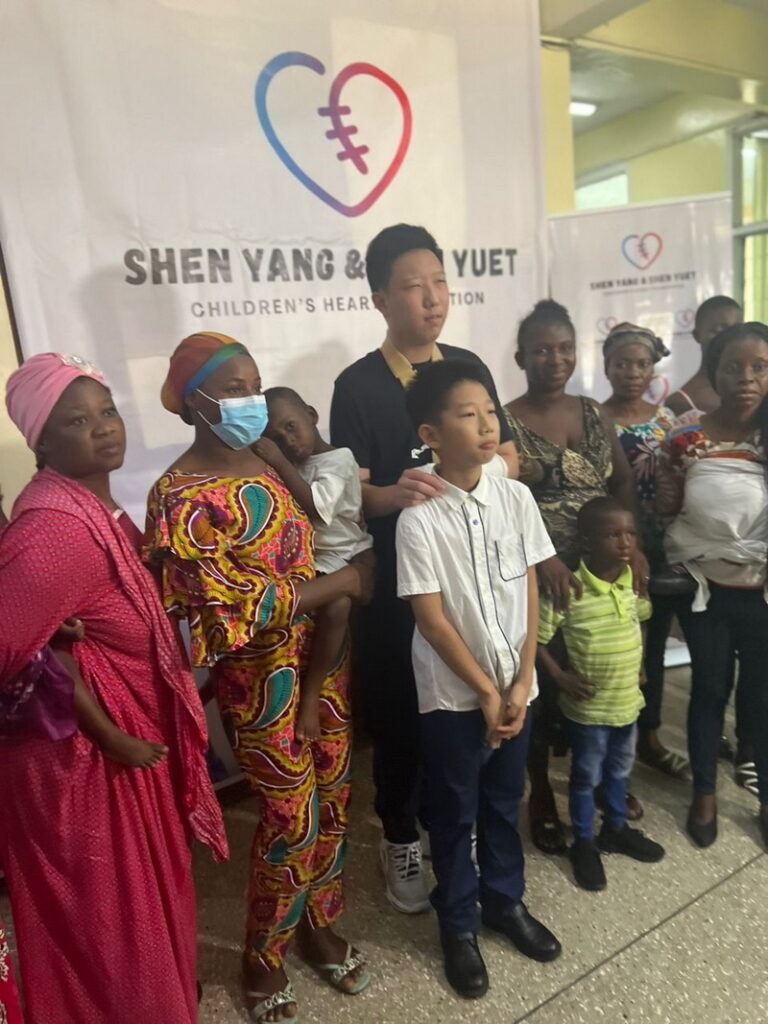
Shen Yano, 17, considers it an honor to represent the foundation, and he pledges to publicize the work of the National Cardiothoracic Centre in China in order to raise more money for those in need of treatment there.
“I’m happy to be doing this because having survived what was a life-and-death matter and also looking at Ghanaian children whose parents cannot afford the cost of treatment, I will continue to ensure the foundation is able to do its job as promised.”
Children with chest conditions, including hole-in-heart, who are receiving treatment at the National Cardiothoracic Centre (NCC) of the Korle Bu Teaching Hospital in Accra are unable to have surgery because their parents are unable to raise the necessary funds, according to consultant surgeon Dr. Kow Entsua Mensah.
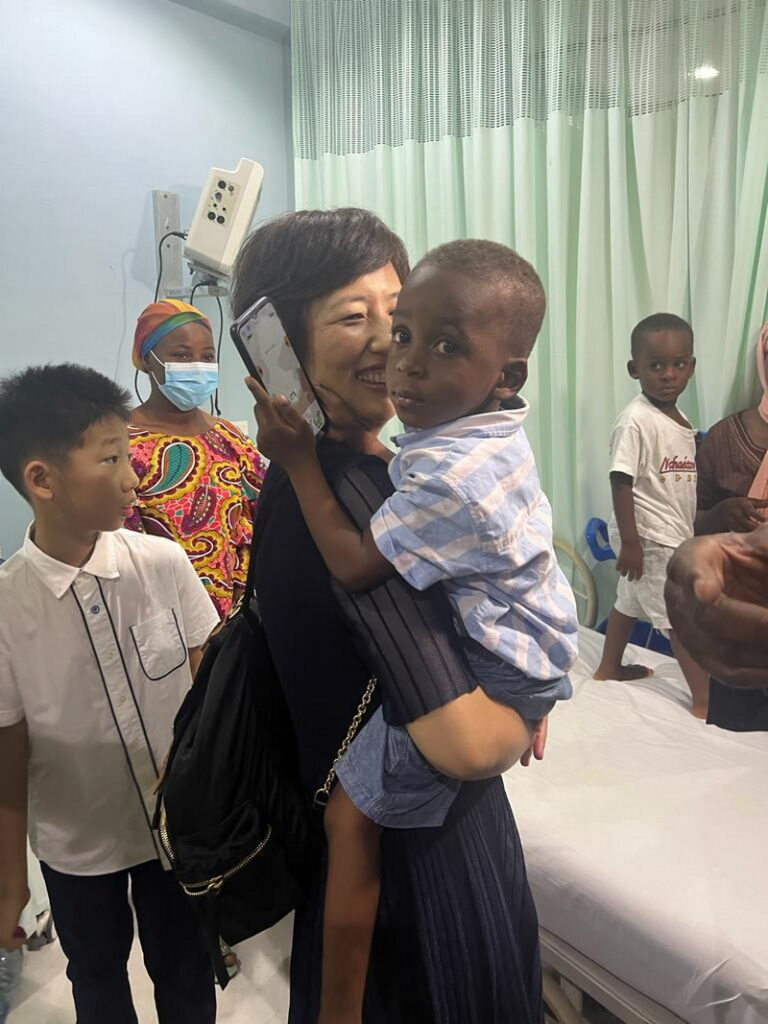
He was concerned that occasionally, kids with heart defects and other chest problems might pass away while their parents were raising money for surgery.
“Unfortunately, a few of them pass away while waiting for help to come. It is something we do not like at all. A few children die before they can be helped,” he said.
Dr. Mensah is optimistic that the foundation’s 10-year effort will assist in treating kids from underprivileged families.
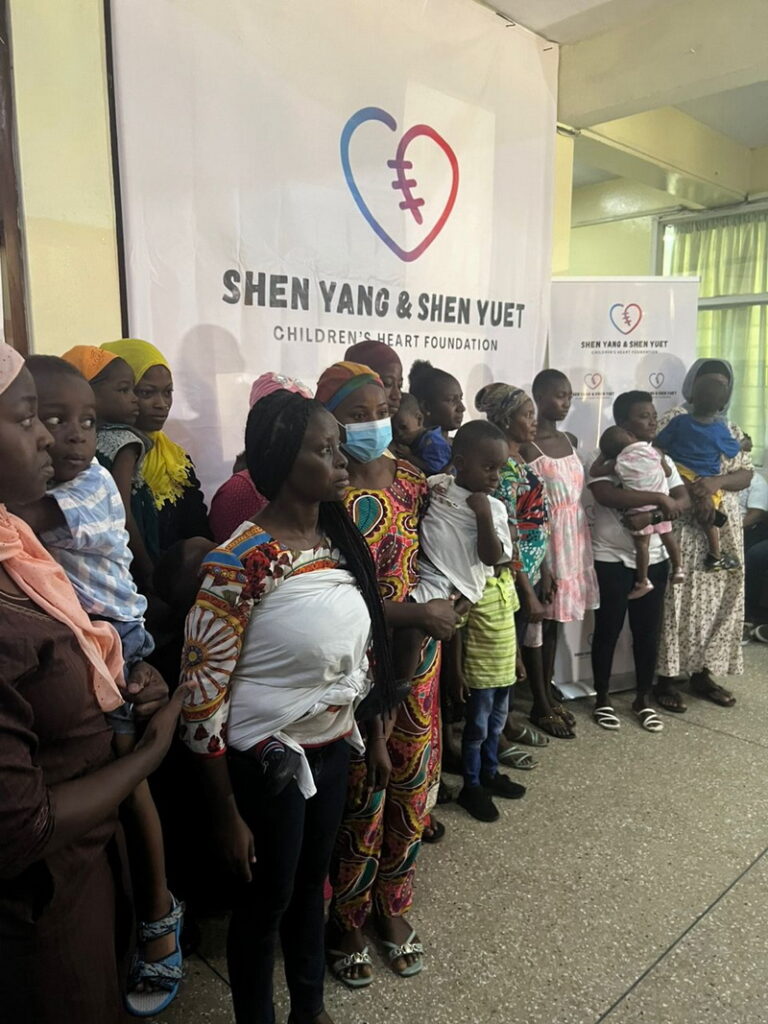
Chief Executive Officer of the Korle Bu Teaching Hospital, Dr. Opoku Ware Ampomah says because the cost of equipment was quoted in dollars, the recent depreciation of the cedi against the dollar had made it more difficult for parents to get the cedi equivalent.
In order to save the lives of children who had heart holes and other chest conditions, he pleaded with corporations and individuals to come to their aid. He claimed that only with this support could the children receive the necessary financial assistance for the surgery that would cure their conditions, as their parents could not do so on their own.
He claimed that while children who underwent surgery led normal lives, those who were unable to do so risked the chance of dying.
Source: BBCNEWS




